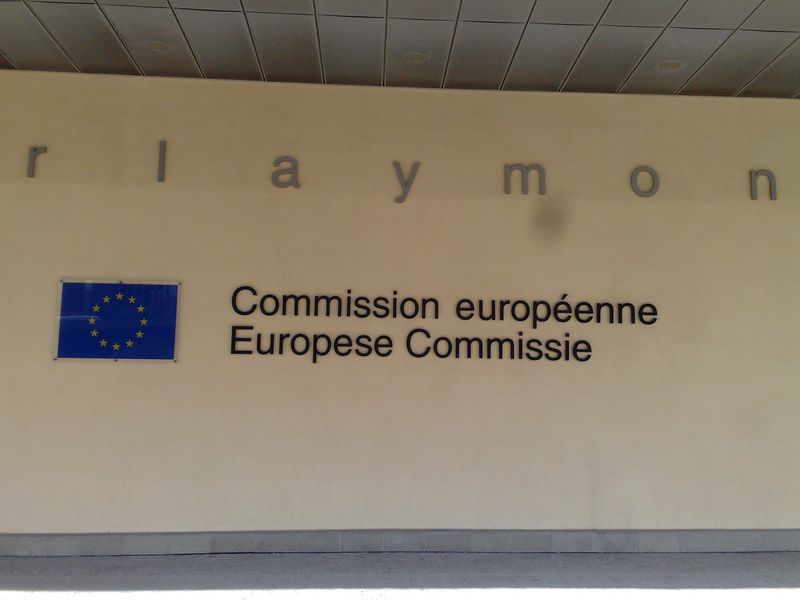Gheorghi Anghelov: Measures that lead to spending cuts are good ones
Adelina Marini, April 8, 2010
 Good measures are those directed to spending reduction, financial discipline, prevention of leaks, privatisation, reforms and improvement of public services. The increase of the capital of the state Bulgarian Development Bank is senseless and a harmful measure. This is the opinion of the senior economist at the Open Society Institute Gheorghi Anghelov who commented on the anti crisis measures of the government. Here are all his answers to the questionnaire euinside sent him:
Good measures are those directed to spending reduction, financial discipline, prevention of leaks, privatisation, reforms and improvement of public services. The increase of the capital of the state Bulgarian Development Bank is senseless and a harmful measure. This is the opinion of the senior economist at the Open Society Institute Gheorghi Anghelov who commented on the anti crisis measures of the government. Here are all his answers to the questionnaire euinside sent him:
1. How should we understand the following measure: "Gathering of additional internal and external financial resources, aimed at supporting the fiscal reserve" - where this additional financial resources should come from and how?
Gheorghi Anghelov: This is a hint for an increase of public debt which we do not need*, if, of course, the government really is determined to restrict spending and the deficit in the budget. Taking loans is not a good sign, especially when you claim that you don't need funding because you've closed the gap in the budget. This would diminish the confidence in government's policy and could cast serious doubts.
2. Many of the measures have no deadline and a financial effect estimation (or how much they would cost), could you give your assessment of how effective these measures would be and when should we expect an effect? For example, the plans for greenhouse gasses sale, privatisation, measures to restrict public spending and the completion of e-government, etc?
Gheorghi Anghelov: An effect could be felt when the measures start being implemented. For sure, the first step must be spending cuts. This measure should be complemented by an overall reform of the public sector. When these measures are being implemented, we will immediately see their effect. The measures, related to privatisation should also be sped up.
Some measures should not be implemented at all or their realisation should be postponed in time. For example, those are measures that envisage increase of public spending, which must not be allowed unless it is certain that the budget could afford it.
Regarding structural measures, like e-government, there must be a firm deadline and a person or an institution that is responsible for it. Otherwise, it will happen as many times before, which is - nothing.
3. How possible it is to achieve the goal of collecting 1.6 bn levs this year from these measures? And, in fact, what problems this money can solve?
Gheorghi Anghelov: The effect of collecting 1.6 bn levs is absolutely achievable and would be good if this could happen. Otherwise we risk problems with the deficit and a slowdown of recovery (and also a Greek scenario). The problem is related to the change in the structure of the economy (less import and investments, leading to less VAT revenues), as well as to a wrong forecast for the revenues in Budget 2010.
4. Which measures do you consider good and working? (for example, are the measures to recover fiscal discipline good ones?)
Gheorghi Anghelov: The measures directed toward spending cuts, financial discipline, prevention of leaks, privatisation, reforms and improvement of public services are good. Those are the measures that have to be realised at any cost.
5. What is your opinion about the decision to increase the capital of the state Bulgarian Development Bank, aimed at directing financial resources toward small and medium enterprises?
Gheorghi Anghelov: A senseless and harmful measure. The government cannot afford pouring money in state enterprises and banks because its resources are limited and should not be thrown away (and it would be a very bad sign if the reserves fall drastically which will happen if money is poured into the BDB). The experience with BDB shows that it has no significant effect on the economy, credit and small enterprises. In order to have any, the general economic environment in the country must be improved - in the words, the budget to be stabilized, to remove bureaucratic and other red tape, to create good conditions for business, to move closer to the euro area. Those are specific measures which can secure more and cheaper financial resources for small and medium enterprises than the BDB.
6. The sick-leaves - the National Insurance Institute will start paying sick-leaves from day 4 - by then the employer will pay the first 2 days of a sick-leave and the worker will finance the 3rd day. Given that the worker and the employer have already paid health insurance contributions, isn't this in fact a hidden increase of health contributions?
Gheorghi Anghelov: There are a lot of abuses with sick-leaves - both by employers and workers. This is why it is good to introduce stimuli to help reduce abuses. It would be better, however, the first day of a sick-leave to be paid by the worker and the next several days to be financed by the employer. This is a form of "additional payment" or "co-financing" (deductible), which is often used in insurance contracts, indeed to avoid such distortions. The procedure is even tighter in other countries - in Estonia the state starts paying after the 10th day of a sick-leave.
7. Regarding the measures in support of household incomes, do you approve the commitment to increase the minimal wage and do you think that all these measures are directed toward the poorest and unemployed rather then to the middle class of working people?
Gheorghi Anghelov: The minimum wage does not support neither the economy, nor the incomes at all. This measure can only create more unemployment. To a large extent, the current budgetary problem has been created by pre-election measures (increase of pensions and increase of salaries in the army in 2009). It is obvious that in order to finance these more generous expenses during a crisis, someone will have to pay.
Unfortunately, it really seems that in the anti crisis package there are measures which just protect the status quo instead of boosting the economy. One measure, for example, is postponing the ruling party GERB's pre-election pledge to boost labour market, employment and economy. This indeed is on the back of who is working and the economy.
8. Is there a real possibility VAT to be increased to 22% (from the current rate of 20%) and what would the consequences of such a measure be?
Gheorghi Anghelov: If the government does not succeed in cutting spending, it will have to increase VAT (currently 20%) which will transfer the problem from the state to the private sector and households. This is not a good policy - not only because it is a crisis but also because increasing tax burden would have a negative effect on the economic development in the long-term while Bulgaria is desperately needing fast economic recovery because it is still the poorest EU country.
9. Do you share the government's satisfaction with the work of the National Council for Trilateral Cooperation (NCTC) and that this is exactly how it should work in the future?
Gheorghi Anghelov: Generally the government should not try and transfer its responsibility on the NCTC because it cannot carry it. Voters have voted for politicians not for a trilateral council and the politicians are those who will answer to voters during elections. Of course, it is good that the NCTC has realised how important budgetary stability is - it was only until several weeks ago that unionists and other representatives of the NCTC were trying to convince us that we should let the budget loose as an anti crisis measure. The effect of the Greek crisis had a positive impact by reducing the insane and populist proposals in Bulgaria.
10. Are the measures adequate against the background of the development of the crisis in Bulgaria and the forecasts that it will be a long one?
Gheorghi Anghelov: Some - yes, others - no. But regarding fiscal measures that address the budget problem, they are absolutely obligatory and must be even deeper. The important thing is, however, implementation. Not just writing a list but realise some of the measures in practice.
11. Do you think the claims of the cabinet that the state has no money because the previous government has concluded contracts for which there were no money in the budget, have any grounds?
Gheorghi Anghelov: The current measures addressed a budgetary problem which did not include these contracts. It would be very unpleasant and worrying if there really are contracts for over 2 bn levs because this would automatically mean that Bulgaria has violated the budget deficit requirements in 2009 and will have to look for money in 2010 to pay for the contracts. We will find out what the truth is in the end of April when Eurostat will publish its data for the deficit in 2009.
*the boldings were made by euinside
 | © euinside
| © euinside | © euinside
| © euinside | © euinside
| © euinside